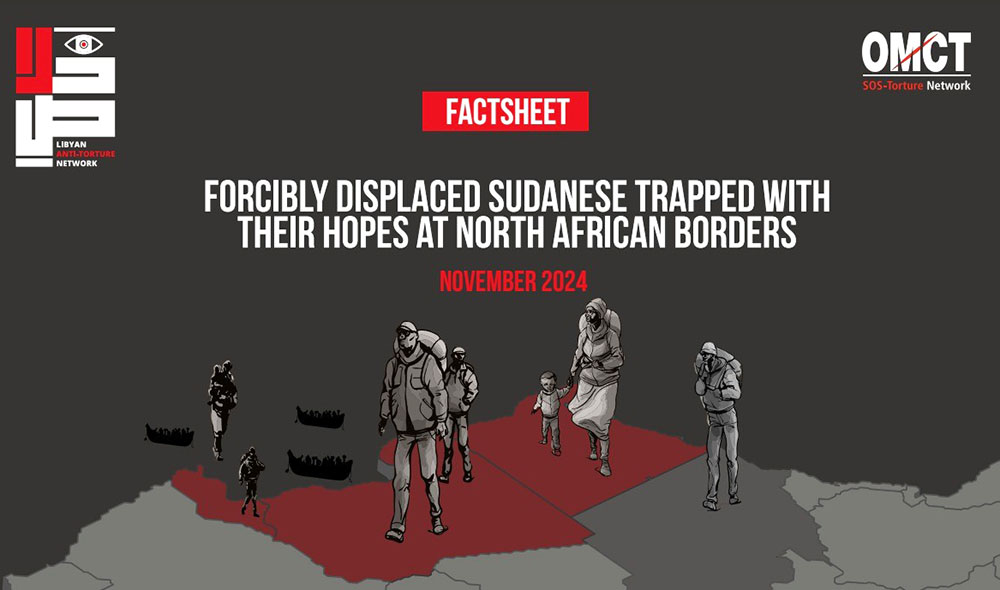
Rights Report: Sudanese Refugees in Libya, Tunisia, and Egypt ``On the Brink of Collapse``
Moatinoon
Two human rights organizations have expressed deep concern over the conditions of Sudanese refugees in Libya, Tunisia, and Egypt.
In a joint report released yesterday, the World Organization Against Torture (OMCT) and the Libyan Network Against Torture revealed that forcibly displaced Sudanese in North African countries, particularly Libya, Tunisia, and Egypt, are subjected to arbitrary arrests, detention, extortion, human trafficking, torture, mistreatment, gender-based violence, and racial discrimination. These human rights violations are exacerbated by the humanitarian crisis, leaving forcibly displaced Sudanese with limited access to essential services such as healthcare, education, and housing.
A human rights advocate from the Libyan Network Against Torture, speaking anonymously due to security concerns, said:
"Despite cultural and historical ties, Libya, Egypt, and Tunisia have failed to fulfill their international obligations to adequately protect forcibly displaced Sudanese. These countries have implemented restrictive policies resulting in widespread human rights abuses and worsening the humanitarian crisis."
Since the outbreak of conflict in Sudan in April 2023, over 10 million Sudanese have been internally displaced, and more than 3.1 million have sought refuge in neighboring countries, according to the United Nations.
The report highlights that refugees face widespread human rights abuses as they seek asylum in neighboring countries, including Libya, Tunisia, and Egypt.
It added that increasingly restrictive policies in these countries have intensified pressure, surveillance, and restrictions on the activities of civil society organizations, hindering their ability to provide life-saving aid to those on the move.
Last week, Tunisian security forces arrested dozens of Sudanese refugees and transferred them to detention centers in the Awkamash area of western Libya, where they remain in custody.
The report, based on research, documentation, and surveys conducted with 127 Sudanese individuals, along with interviews with community leaders, representatives of local and international NGOs, and UN agencies, sheds light on alarming trends. It revealed that over 40% of Sudanese respondents reported experiencing increased levels of racial discrimination or violence in their host countries. Of these, more than 36% attributed such behavior and abuses to citizens and authorities, while over 25% identified criminal or non-governmental groups, including militias, traffickers, and smugglers, as the perpetrators.
Additionally, 54% of Sudanese refugees surveyed expressed a desire to settle in a safe country, while 80% intend to attempt crossing to Europe within six months, despite the associated risks. The International Organization for Migration (IOM) reported 1,351 deaths and disappearances in the Mediterranean Sea in 2024 alone, including 63 children.
Isidore Collins Ngueuleu, Head of the Africa Office at the World Organization Against Torture, stated:
"The situation of forcibly displaced Sudanese in North Africa is on the verge of collapse. We must act now to avoid losing an entire generation of Sudanese, who are currently facing some of the most extreme forms of torture and mistreatment along their perilous journey in search of safety and refuge."
He further emphasized:
"What is happening is appalling and unacceptable and must stop."
The report called on the international community to take urgent action to provide protection and support to forcibly displaced Sudanese populations by addressing the root causes of displacement, establishing safe and legal pathways for asylum seekers, and ensuring the respect of human rights.

